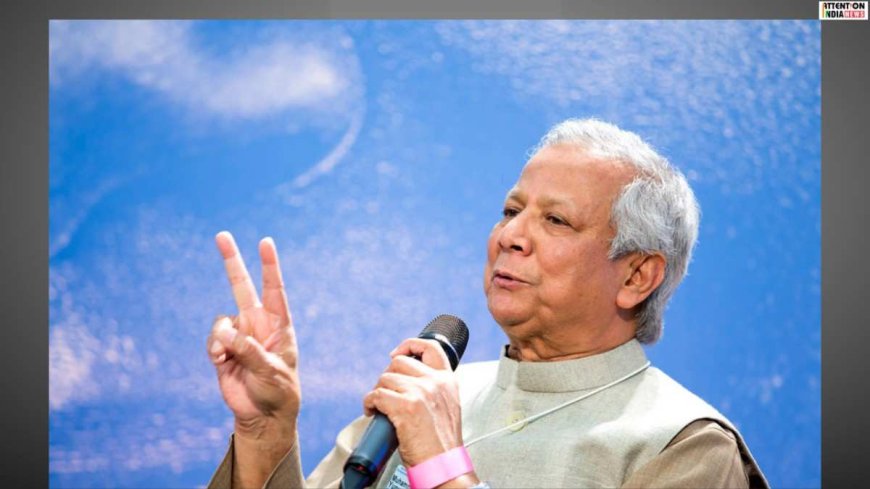Amid political protests in Bangladesh, interim leader Mohd Yunus threatens resignation
Professor Muhammad Yunus, the head of Bangladesh's interim government, is considering resigning because he finds it impossible to function because political parties are unable to come to a common understanding.

New Delhi (India) May 23: Muhammad Yunus, the leader of Bangladesh's temporary government is considering resigning. This comes after a serious warning from Army head General Waker-Uz-Zaman the day before and protests by the Bangladesh Nationalist Party (BNP).
Due to increased opposition from other parties to Yunus and his administration, the temporary leader of Bangladesh has been dealing with a crisis.
Muhammad Yunus threatened to step down if parties did not fully support him after a day of BNP protests and calls for an election roadmap.
BNP leader Khandakar Hossain said, "The highest priority should be placed on announcing a clear road map for the election."
The working relationship between Yunus and the nation's military is also becoming worse. Waker-Uz-Zaman, the chief of staff for the Bangladesh army, and the chief advisor are fighting about the impending elections. General Zaman, who believes Yunus is attempting to plan his removal from power, has asked that elections be held by the end of December in the Yunus rule.
General Zaman also attacked the Yunus government for interfering in military affairs and attempting to make a unilateral decision regarding the "bloody" Rakhine corridor.
After Friday's Jumma prayers, supporters of the chief adviser offered an invitation to participate in the "March for Yunus" in the Shahbagh neighborhood of Dhaka. "Reforms First, Elections Later" and "Keep Yunus in Power for Five Years" were the two requests on the posters.
National Citizen Party (NCP) chief Nhid Islam said, "We have been hearing news of Sir's (Yunus) resignation since this morning. So I went to meet Sir to discuss that issue . . . He said he is thinking about it. He feels that the situation is such that he cannot work.”
Nahid apparently requested Yunus not to take any decision in hurry and said “He should remain strong. He should ensure unity among all parties. I hope everyone will cooperate with him,”
Mahfuj Alam, the adviser for information and broadcasting, and Asif Mahmud, the adviser for the Ministry of Youth and Sports, also met with the top adviser in an attempt to convince Yunus to continue in his role.
Bangladesh's isolation from India has made the situation worse and cost them a number of benefits, including opportunity for bilateral trade and financial assistance.
Since General Waker-Uz-Zaman exposed Muhammad Yunus and the BNP increased pressure on his temporary administration, the resignation narrative is being interpreted as a strategy by the Nobel laureate to maintain his position of power by instigating students and Islamists to protest against the Army chief.

 Aadrika Tayal
Aadrika Tayal 





